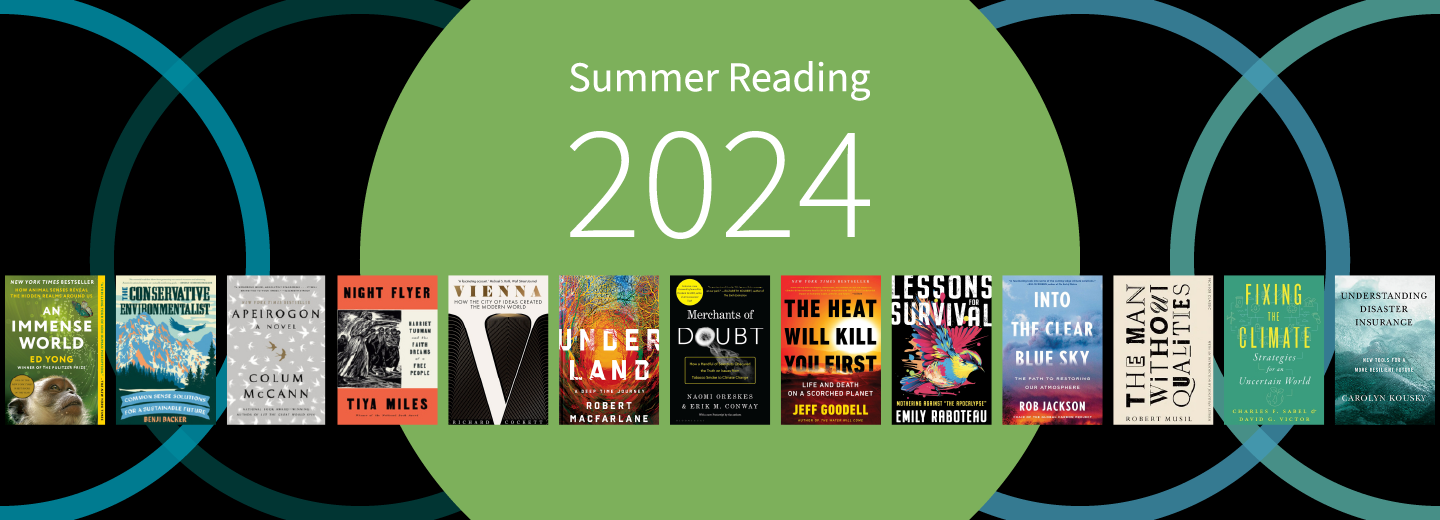
The Heat Will Kill You first: Life and Death on a Scorched Planet
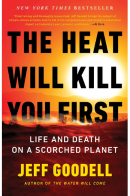
By Jeff Goodell (2023)
“As billions suffer from debilitating and dangerous heat waves, Jeff Goodell provides a vivid and highly readable, if scary, account of the impact of deadly heat on society. A must read book for anyone who cares about the future we are already living and feels motivated to do something about it, which we surely can,” said Anat Admati, the George G.C. Parker Professor of Finance and Economics in the Graduate School of Business and Professor of Environmental Social Sciences in the Stanford Doerr School of Sustainability.
Fixing the Climate: Strategies for an Uncertain World
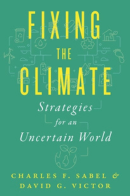
By Charles Sabel and David Victor (2022)
“This book argues that there is still a lot we need to learn about solutions to the climate crisis, and it argues for an approach that emphasizes learning from diverse experiments,” said Chris Field, the Perry L. McCarty Director of the Stanford Woods Institute for the Environment, the Melvin and Joan Lane Professor of Interdisciplinary Studies, and a professor of Earth system science and of biology.
Into the Clear Blue Sky: The Path to Restoring Our Atmosphere
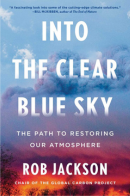
By Rob Jackson (2024)
“From one of the world’s leading climate scientists, a heart- and mind-changing book that offers a hopeful and attainable vision for restoring the atmosphere and ending the climate crisis.” – From the publisher
Out this July, Stanford professor and Global Carbon Project chair Rob Jackson's new book takes readers “across the globe to learn from visionary scientists, advocates, industrialists, innovators, and environmental stewards pointing the way to a zero-emissions future,” said Richard Nevle, deputy director of the Earth Systems Program. Emily Polk, an advanced lecturer in the Program in Writing and Rhetoric Studies, added, “With the same boldness and fearlessness he brings to his research at Stanford, Jackson makes the powerful case that we can restore our atmosphere in a lifetime.”
Available in libraries after July 30
Earth Keeper: Reflections on the American Land
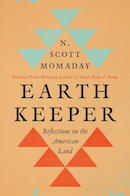
By N. Scott Momaday (2020)
Pulitzer Prize-winning novelist and poet N. Scott Momaday, a member of the Kiowa tribe who grew up on Navajo, Apache, and Pueblo reservations throughout the Southwest, “reflects on his native ground and its influence on his people…He offers an homage and a warning. He shows us that the earth is a sacred place of wonder and beauty, a source of strength and healing that must be honored and protected before it’s too late.” – From the publisher
Suggested by Inês Azevedo, associate professor of energy science and engineering and, by courtesy, of civil and environmental engineering.
Locust: The Devastating Rise and Mysterious Disappearance of the Insect that Shaped the American Frontier
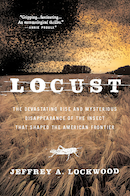
By Jeffrey A. Lockwood (2009)
“I was fascinated to read this work about the locusts that plagued much of the U.S. and decimated agricultural yields prior to the Great Depression, and then mysteriously went extinct,” said Jane Willenbring, associate professor of Earth and planetary sciences and, by courtesy, of Earth system science. “How different the country and the world would be if they had not!”
The Conservative Environmentalist: Common Sense Solutions for a Sustainable Future
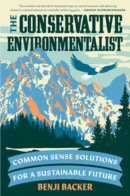
By Benji Backer (2024)
“This book builds the case that political conservatives should be climate activists (sort of). I enjoy learning about the perspectives of people with whom I disagree,” said Chris Field, the Perry L. McCarty Director of the Stanford Woods Institute for the Environment, the Melvin and Joan Lane Professor of Interdisciplinary Studies, and a professor of Earth system science and of biology.
Merchants of Doubt: How a Handful of Scientists Obscured the Truth on Issues from Tobacco Smoke to Global Warming
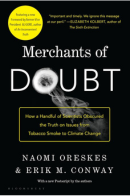
By Naomi Oreskes and Erik Conway (2010)
“This book tells, with ‘brutal clarity’ (Huffington Post), the disquieting story of how a loose-knit group of high-level scientists and scientific advisers, with deep connections in politics and industry, ran effective campaigns to mislead the public and deny well-established scientific knowledge over four decades.” – From the publisher
“Anyone confronting our sustainability and other policy challenges must understand how political discourse on some issues has been contaminated by misleading narratives that have led to our current predicament and continue to interfere with essential action,” said Anat Admati, the George G.C. Parker Professor of Finance and Economics in the Graduate School of Business and Professor of Environmental Social Sciences in the Stanford Doerr School of Sustainability.
Lessons for Survival: Mothering Against ‘the Apocalypse’
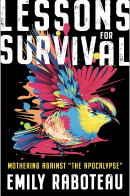
By Emily Raboteau (2024)
“A powerfully moving meditation on race, climate, environmental justice – and what it takes to find shelter…Raboteau bears witness to the inner life of Black womanhood, motherhood, the brutalities and possibilities of cities, while celebrating the beauty and fragility of nature. This innovative work of reportage and autobiography stitches together multiple stories of protection, offering a profound sense of hope.” – From the publisher
Suggested by Emily Polk, an advanced lecturer in the Program in Writing and Rhetoric Studies.
The Johnstown Flood
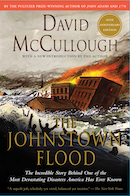
By David McCullough (1987)
“At the end of the nineteenth century, Johnstown, Pennsylvania, was a booming coal-and-steel town filled with hardworking families striving for a piece of the nation’s burgeoning industrial prosperity. In the mountains above Johnstown, an old earth dam had been hastily rebuilt to create a lake for an exclusive summer resort patronized by the tycoons of that same industrial prosperity, among them Andrew Carnegie, Henry Clay Frick, and Andrew Mellon. Despite repeated warnings of possible danger, nothing was done about the dam. Then came May 31, 1889, when the dam burst.” – From the publisher
Jane Willenbring, associate professor of Earth and planetary sciences and, by courtesy, of Earth system science, called it “a great cautionary tale of a human-made disaster in our history. So many people – even some with the ability and means to stop it – saw the impending disaster coming and did nothing.”
Understanding Disaster Insurance: New Tools for a More Resilient Future
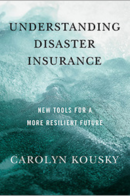
By Carolyn Kousky (2022)
“This short book is the best and most approachable introduction to why climate change is putting enormous stress on our insurance system and how to make that system more resilient and equitable,” said Michael Wara, senior research scholar at the Stanford Woods Institute for the Environment and senior director for policy at the Sustainability Accelerator.
An Immense World: How Animal Senses Reveal the Hidden Realms Around Us
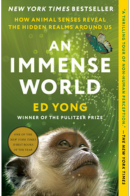
By Ed Yong (2022)
“It does a wonderful job of showing readers how differently other species experience the world from the way that we do. And, of course, this lesson applies within our own species as well,” said Jonathan Payne, the Dorrell William Kirby Professor, Senior Associate Dean for Faculty Affairs, and senior fellow at the Stanford Woods Institute for the Environment.
Night Flyer: Harriet Tubman and the Faith Dreams of a Free People
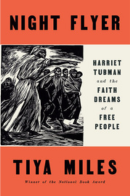
By Tiya Miles (2024)
“Miles explores beyond the stock historical grid to weave Tubman's life into the fabric of her world. She probes the ecological reality of Tubman's surroundings and examines her kinship with other enslaved women who similarly passed through a spiritual wilderness and recorded those travels in profound and moving memoirs…Harriet Tubman traversed many boundaries, inner and outer. Now, thanks to Tiya Miles, she becomes an even clearer and sharper signal from the past, one that can help us to echolocate a more just and sustainable path.” – From the publisher
Suggested by Emily Polk, an advanced lecturer in the Program in Writing and Rhetoric Studies.
The River of Doubt: Theodore Roosevelt’s Darkest Journey
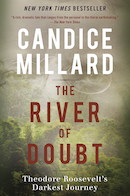
By Candice Millard (2006)
“I’d always heard about Teddy Roosevelt as a tough historical figure who famously criticized critics, but this book documents a fascinating journey made with his son Kermit on a tributary of the Amazon River basin,” said Jane Willenbring, associate professor of Earth and planetary sciences and, by courtesy, of Earth system science.
“After his humiliating election defeat in 1912, Roosevelt set his sights on the most punishing physical challenge he could find, the first descent of an unmapped, rapids-choked tributary of the Amazon. Together with his son Kermit and Brazil’s most famous explorer, Cândido Mariano da Silva Rondon, Roosevelt accomplished a feat so great that many at the time refused to believe it. In the process, he changed the map of the western hemisphere forever.” – From the publisher
Apeirogon: A Novel
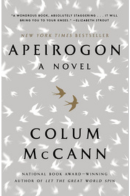
By Colum McCann (2020)
“The book is based on the true story of two men, one Palestinian the other Israeli, who lost daughters to violence. The author interweaves historical events, imagined thoughts and conversations, with seemingly random sections on birds, history, and more. The book is ultimately very powerful. Both men exhibit incredible strength in arguing for a different way forward. In some way they have already lost so much that they are powerful, immune to name calling and threats,” said Paul Segall, the Cecil H. and Ida M. Green Professor of Geophysics.
Vienna: How the City of Ideas Created the Modern World
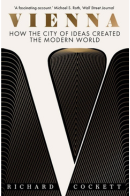
By Richard Cockett (2023)
“The book is a delightful read, not only to gain an appreciation for the breadth of familiar ideas and things that trace their roots to Vienna, but also to reflect on the parallels between the contested ideas and ideals of our own time and those from decades and centuries past,” said Dustin Schroeder, associate professor of geophysics and of electrical engineering, and a senior fellow at the Stanford Woods Institute for the Environment.
The Man Without Qualities
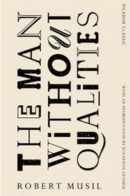
By Robert Musil (1930; 1995 translation by Sophie Wilkins and Burton Pike)
“Vienna, on the eve of WW I, home to Freud, Mahler, and Wittgenstein, was the apex of European civilization. It was also, as the hub of the last Habsburg Empire, the rotting, living-dead core of ancien-régime Europe. Tumultuous, manic, and loosed from its traditional moral and spiritual moorings, Vienna was a fertile breeding ground not only for genius but also for defensive provincialism and, ultimately, fascism. That Vienna is the setting of this most celebrated of seldomly read novels…Begun in the early 1920s, the first volume was published in 1930 and remained unfinished when Musil died in 1942.” – Kirkus Reviews
Suggested by William Barnett, the Thomas M. Siebel Professor of Business Leadership in the Graduate School of Business, chair of the Stanford Doerr School of Sustainability’s Environmental Social Sciences Department, and a senior fellow at the Stanford Woods Institute for the Environment.
Underland: A Deep Time Journey
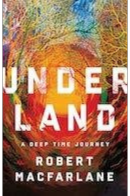
By Robert MacFarlane (2019)
"An epic exploration of the Earth’s underworlds as they exist in myth, literature, memory, and the land itself." – From the publisher
Rob Jackson, the Michelle and Kevin Douglas Provostial Professor, senior fellow at the Stanford Woods Institute for the Environment and Precourt Institute for Energy, and professor of Earth system science, called the book “spiritual.”